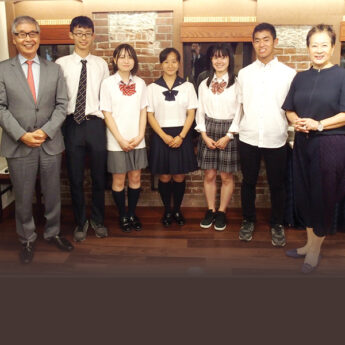The world is very different from that I imagined it would be when I was a child. But, although my dreams of flying cars and doors that could take you anywhere have not yet been realised, that technology may be created one day.
With globalisation, the continual birth of new technologies and the rapid evolution of others, we can no longer foresee the world to come. Our children are preparing to sail off into uncharted waters.
An education catering for the future needs to go beyond teaching technological integration and science, technology, engineering and math (STEM). It also needs to foster new ways of thinking and promote dispositions that can lead to success.
Moreover, it requires educators to create environments and provide experiences that encourage exploration, inquiry, creativity, curiosity and understanding. Our children need a borderless multicultural education.
To function in an international society with a blend of cultures and value systems, it is important we are respectful and considerate of others. It is critical to have flexibility to embrace, rather than reject, differences simply because we don’t understand them.
The technology in use now did not exist 20 years ago. When the children of today enter the workplace there will be new inventions beyond our imagination. Our children’s future is filled with infinite opportunities.
It is clear that early education plays a key role in bringing about these changes. But solely getting good marks in tests does not make a child an international citizen.
We need to educate children based on the emerging industries of the 21st century, cultivating skills needed to be innovative and entrepreneurial, and to lead with confidence. STEM education is key. It will help children to learn the process of manufacturing, and develop abilities to give tangible form to their ideas—which they can carry through to the end—and solve problems.
Early childhood education needs to prepare an environment that presents diversity positively through resources and materials, without perpetuating stereotypes. We must build up children’s self-esteem and confidence in their identity so that they are comfortable with themselves and thereby less likely to be prejudiced. The use of cognitive approaches, in which children are guided to develop thinking skills and vocabulary, will help them recognise generalisations and biases, and stand against injustice.
Nutrition is another important part of education. By learning the importance of what we eat, we can help instil healthy eating habits from a young age.
It is also important to teach children to express their thoughts and opinions to help foster their communication skills.






